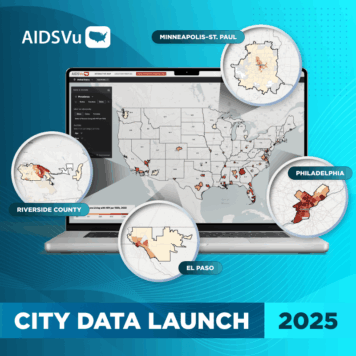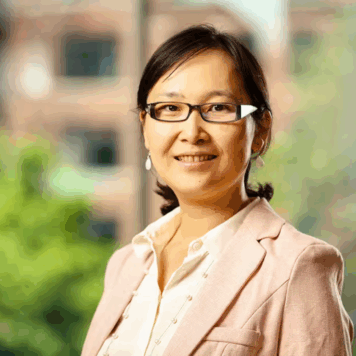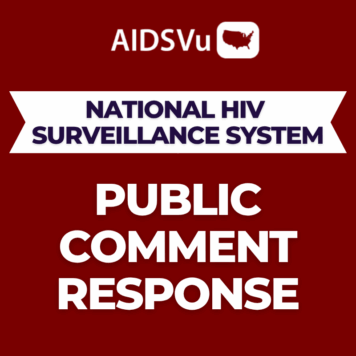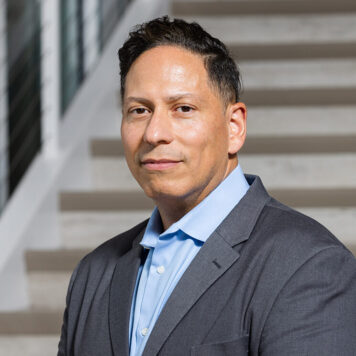Mr. Reginald (Reggie) Smith serves as Director of the Reginald & Dionne Smith Foundation, which “works to improve total wellness for families affected by HIV, Hepatitis, and substance use disorders through education, advocacy, resources, and links to care”. His latest book, “Resurrection” – Participate in Your own Salvation or be Complicit in Your own Demise, is available on his website, as well as information on joining his community.
Q: You have been working in HIV for over 30 years. What led you to work with communities impacted by HIV, and why did you establish the Reginald & Dionne Smith Foundation?
A: I was diagnosed with “full-blown” AIDS and Hepatitis C in 1988, three years after I had started my recovery from a heroin and cocaine addiction. I had seen the devastation that HIV caused in my life, in the lives of our families, and in our communities, and I wanted to do something about it. The stigma of HIV was so oppressive that I did not share my status with anyone, including my family outside of my wife. I did not tell my mother, my children, or anyone else for at least 14 years. When I was finally compelled to share my story, I decided to write my first book “Surrender To Heal” – 7 Ways to Rise Above the Battlefields of Life. I had changed my lifestyle in the hopes that I could stay healthy and live. It was an experiment for me because there was no data on the effects meditation, yoga, and vegetarianism could have on living with AIDS, but when I saw the positive results I was having over the years—and after watching so many friends and family die from complications caused by HIV—I looked for ways to share my experiences with the world.
As I began to share my experiences, I realized that more support was needed for people who were in heterosexual and serodiscordant relationships like the one my wife and I share. I thank God for the LGBTQ community and their advocacy around HIV because we were all traumatized and dying, especially before antiretroviral treatments were available. I could also see, though, that many of my peers and friends in recovery from substance use disorders were suffering and dying because they were unwilling to engage with the LGBTQ community for fear of being labeled either gay or HIV positive or both. My wife Dionne and I knew that we were responsible for the great blessings we had received, so we decided to establish The Reginald & Dionne Smith Foundation to engage and educate our friends, family, and the recovery community.
Q: Black Americans are disproportionately impacted by HIV and often experience poorer health outcomes compared to other races and ethnicities in the U.S. In 2020 for instance, Black Americans represented 42% of new HIV diagnoses, but only 12% of the population. What do you see as the systemic challenges that drive these HIV-related health disparities?
A: Systemic racism and classism are the major challenges that drive HIV-related health disparities, and the trauma caused by these unnecessary, unfortunate, and unending pathologies is devastating. As much as the revolutionary in me would like to change those things, we have not achieved justice in the United States in my 65 years. Acknowledging that, we should accept that there are some things that we may not be able to change, and we should look to control the things that we can—and have the wisdom to know the difference.
I would say that even as we continue to advocate for changes in the system, it is by changing ourselves that we will reconcile the health disparities we are experiencing. That is true systemically and individually. We are totally invested in coming together in our Wellness, Awareness & Recovery Community where we are raising our spiritual and emotional vibrations to achieve total wellness. The numbers around HIV and every other health disparity that the Black community is experiencing continue to be disproportionately grave. The responsibility for change in our own health and self-care is in our own hands. We can help ourselves to do that by providing peer-to-peer encouragement, accountability, and support. When we reach critical mass in our practices and social norms around HIV, the paradigm will shift.
Q: You have been vocal about your experience as a Black heterosexual man living with HIV. What do you think makes your experience unique, and what still needs to be done to address the disproportionate impact of HIV on Black men?
A: I have been vocal about my experience as a heterosexual Black man living with HIV because I am compelled to do so. Few of us seem willing to speak out and that is a direct result of the stigma surrounding HIV, where sexual orientation and the fear of being misidentified keeps heterosexual Black men (HBM) from sharing our stories and accessing information and treatment. HBM living in the U.S. are seldom mentioned or addressed in the world of HIV prevention, care, or research.
Heterosexual men may be reluctant to access HIV testing and education programs because they are concerned they might be labeled as gay or in the closet. Straight men often are blamed for the HIV epidemic among heterosexual women, and may carry guilt and shame, or fear criminal charges. These days, HBM often do not see a benefit in speaking out. That reticence shows up in the high rate of infection of Black women through heterosexual contact.
I think my experience may be unique in that my security is not threatened when I speak out publicly. I am comfortable with my sexuality, have some communication skills, and have been married for 36 years. I am living on a pension, so I am not afraid of losing my livelihood. I am loved by my family, friends, and community, and as a result of my involvement with the LGBTQ community, I feel secure that even if I were to say or do something considered offensive, people would know it was out of ignorance and that I am culturally humble enough to learn from the experience.
I think we as Black men will have to change our approach if we are going to end the HIV epidemic. We need to address the attitudes that have kept us from dealing with our common enemy. Gay and straight Black men need to come together, especially to protect Black women. Black women are the common bond we all have, and neither we nor our children would be here without them. Yet they are the ones who are disproportionately affected in so many ways. In 2019, for example, Black women represented 7% of the U.S. population but 11% of all new HIV diagnoses and 56% of all new HIV diagnoses among women. They have suffered from losing their fathers, husbands, sons, and brothers to HIV. We as Black men need to come together to serve the higher good despite differences or resentments we may have towards each other.
Systemically, I think we need to address the synergistic epidemics of violence, substance abuse, adverse mental health, and HIV that significantly contribute to the burden of disease. We should expend energy and resources in developing and implementing interventions that provide maximal reductions in these syndemics while reducing disparities in prevention, care, and treatment. We should gather much more data on the forgotten demographic of HBM. We also need more positive and authentic imagery about the experiences of HBM with HIV, and we should emphasize and incentivize holistic healing solutions and peer-to-peer support.
Q: You have shared that you learned you were HIV positive when your wife became pregnant. Can you speak about the importance of prenatal HIV testing, especially among Black women?
A: Prenatal HIV testing is an important tool in our effort to end the HIV epidemic. Men should know their status and we should protect our queens. Thankfully, as a result of advances in medicine, few children are born HIV-positive these days. It is crucial that women receive prenatal care and HIV testing to prevent the physical and emotional consequences of neglecting to do so. It would be great if political and socioeconomic drama did not prevent women from being able to access care regardless of status. Black women should have agency over their bodies, and Black men and society should see to that reality. My wife, Dionne, was HIV negative when we got pregnant 33 years ago and she remains HIV negative to this day, thank God. We used condoms during sex after my diagnosis and stopped when science informed us that undetectable equals untransmittable. When Black women know their status, they can save and protect future generations.
Q: February 7 is National Black HIV/AIDS Awareness Day, which serves as an opportunity to highlight the deep health disparities among Black Americans living with HIV in the U.S. What message do you have for the community on this day?
A: As much as February 7th serves as an opportunity to highlight the deep and abiding health disparities among Black Americans living with HIV, it also is a chance to celebrate our resilience and recommit ourselves to becoming more aware of just how attainable the goal of ending the HIV epidemic is. I want our community to be more aspirational about holding ourselves and the systems (health, political, etc.) accountable for our health outcomes. We should be strategic about applying the knowledge we have about HIV prevention and treatment in ways that are sustainable despite outside forces.
My message specifically for Black men of all sexual orientations is to remember that HIV is our adversary, not each other. We have the power and the tools to stop it. We can be revolutionaries by simply being responsible for our sexual behavior and aware of the dire need to do so. That is the act of love that could overcome the multigenerational trauma we are healing from, and love heals all. Let’s protect our queens and families and end the HIV epidemic now.




